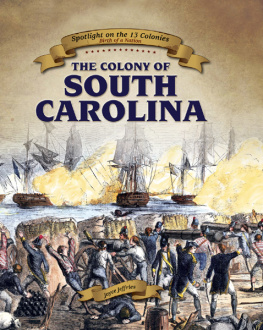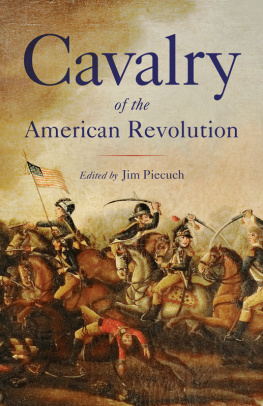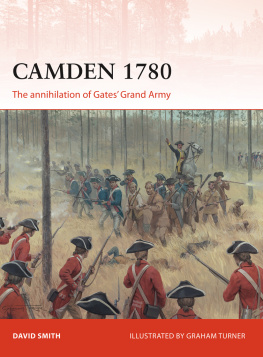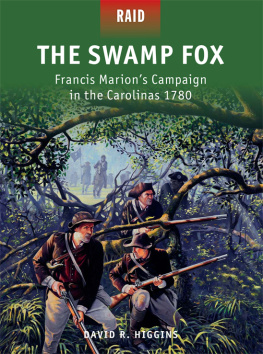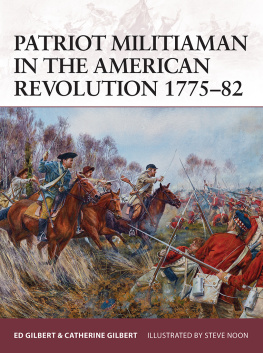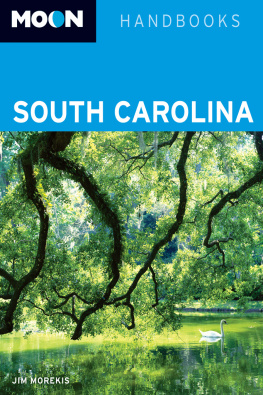

Published by The History Press
Charleston, SC 29403
www.historypress.net
Copyright 2005 by Michael C. Scoggins
York County Culture and Heritage Commission
All Rights Reserved
Front Cover: Whig militia open fire on the loyalists at Williamsons Plantation on the morning of 12 July 1780. Photograph by the author, from a reenactment at Historic Brattonsville, McConnels, South Carolina.
First published 2005
e-book edition 2012
Manufactured in the United States
ISBN 978.1.61423.795.2
Library of Congress Cataloging-in-Publication Data
Scoggins, Michael C.
The day it rained militia : Hucks defeat and the revolution in the South Carolina backcountry, May-July, 1780 / Michael C. Scoggins ; with a foreword by Walter Edgar.
p. cm.
Includes bibliographical references and index.
print edition ISBN 978.1.59629.015.0 (alk. paper)
1. South Carolina--History--Revolution, 1775-1783--Campaigns. 2. United States--History--Revolution, 1775-1783--Campaigns. I. Title.
E.263.S7S23 2005
973.33609757--dc22
2005011675
Notice: The information in this book is true and complete to the best of our knowledge. It is offered without guarantee on the part of the author or The History Press. The author and The History Press disclaim all liability in connection with the use of this book.
All rights reserved. No part of this book may be reproduced or transmitted in any form whatsoever without prior written permission from the publisher except in the case of brief quotations embodied in critical articles and reviews.
To my family
We have driven the Regulars out of the country, and I swear that even if it rained militia from the Heavens, I would not value them.
Captain Christian Huck to the James Williamson family on the morning of 12 July 1780.
Captain Huck was attacked this morning about sunrise by a large body of rebels and has been totally defeated. Captain Huck they inform me is killed.
Lieutenant Colonel George Turnbull to Lieutenant Colonel Francis, Lord Rawdon, on the afternoon of 12 July 1780.
CONTENTS
Foreword
The Battle of Hucks Defeat (or the Battle of Williamsons Plantation as it is sometimes known) was one of the more significant battles of the American Revolution. Alas, today, itlike many other battles of the Southern Campaign in the American Revolutionhas been forgotten. American history, especially the history of the war that won us our independence, has taken a shorter, less historical route from Lexington and Concord, Massachusetts, to Yorktown, Virginia. In many American history textbooks, there is little or nothing about the Revolutionary War in the South. But, as the British know (just read their accounts from the eighteenth century to the present), they lost the war in the backwoods of South Carolina.
On 12 July 1780, the South Carolina militia defeated a detachment of BanastreTarletons feared British Legion. That in itself was a significant accomplishment, but the psychological effect of this victory in what was then the New Acquisition District of South Carolina reverberated far beyond the immediate vicinity. The victory bolstered the hopes of patriots all across the northern districts. Men flocked to join the various partisan bands under Thomas Sumter, William Bratton, William Hill, Edward Lacey, William Davie and others. Conversely, those men who might have been inclined to join Tory militia units had second thoughtsespecially hearing reports of this battle and its aftermath: [M]any of the wounded Tories escaped into the woods, noted Laceys biographer, and were afterwards found dead.1
Just two weeks after Lord Cornwallis had confidently reported to his superiors that he had South Carolina well under control, he received word of the Battle at Williamsons Plantation in the New Acquisition District. He was not a happy man: The unlucky affair that happened to the detachment of Captain Huck of the Legion has given me great uneasiness.
Cornwallis had every reason to be concerned. For, from this date onward, he faced mounting opposition to the British occupation of South Carolina. Especially in the northern districts along the South Carolina-North Carolina border, partisan warfare erupted violentlyand with a vengeance.
In this wonderfully detailed account of the Battle of Hucks Defeat, Michael Scoggins provides twenty-first-century readers with an opportunity to learn more about the battle, the events leading up to it and its place in American history The Battle of Hucks Defeat was just the first of nearly two dozen defeats that the partisans of South Carolina would inflict on the British Army of occupation over the course of two months of 1780. And, only twenty miles and eighty-five days separated the defeat of Captain Christian Huck of the British Legion and the magnificent partisan triumph at the Battle of Kings Mountain.
Walter Edgar
Columbia, South Carolina
6 February 2005
. Maurice A. Moore, The Life of Gen. Edward Lacey (Spartanburg, SC: Douglas, Evins & Co., 1859), 10.
Acknowledgements
The cooperation and assistance of a great many individuals and institutions went into the research and production of this book. I would like to express my appreciation and indebtedness first of all to Dr. Bobby G. Moss of Blacksburg, South Carolina, whose pioneering research on the Revolutionary War soldiers of this stateboth patriot and Loyalistmade it possible to track down the names and service records of many of the soldiers who fought in the Battle of Hucks Defeat. Reading the firsthand accounts of the men from what are now York and Chester Counties who fought in the American Revolution is an incredible experience for a military historian, and Dr. Mosss dedication and hard work made tracking those accounts down a much easier task. The work of two other historians also inspired me on this project. Allan W. Eckerts amazing series of books on the settlement of the Ohio frontier demonstrates how primary source records can be turned into fascinating historical narratives that outclass any work of fiction. Dr. Lawrence E. Babits painstaking study of the Battle of Cowpens, A Devil of a Whipping, shows how a modern historian can reconstruct a Revolutionary War battle by bringing together information from Federal pension applications and other fragmentary first-person accounts. Honorable mention should also go to Brent H. Holcomb and Elmer O. Parker, whose transcription and publication of the early court records of North and South Carolina provided much needed background on the eighteenth-century settlers of the Carolina Upcountry.
I would like to extend my lasting gratitude to the interlibrary loan staff of the Dacus Library at Winthrop University in Rock Hill, South Carolina. Jackie McFadden, Camille Livingston, Ann Thomas and Doug Short tirelessly worked to track down many a curious and quaint volume of forgotten lore, no matter how obscure or hard to find, and I owe them a great debt. Likewise Gina Price-White of the Winthrop University Archives was of great help in my research. Robert Mcintosh and the rest of the staff at the South Carolina Department of Archives and History rendered tremendous assistance during the many hours I spent there. Other institutions whose resources I utilized include the York County Public Library, the Chester County Public Library, the Spartanburg County Library, South Caroliniana Library and the Spartanburg County Regional Museum of History.


